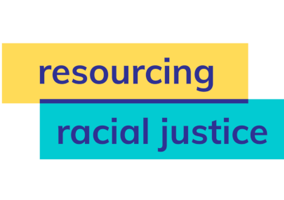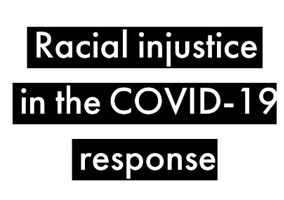Funders and umbrella bodies are not acting quickly enough to tackle the impact of the coronavirus crisis on BAME communities, #CharitySoWhite has warned.
The organisation published a blog on Friday giving details of its engagements with funding organisations and umbrella bodies.
It says that while funders were generally open to hear from different perspectives, the organisation also encountered “a range of problematic power dynamics, including many who are early on in their journey of understanding structural racism and learning and acknowledging the power they hold”.
It says that “actions to date are not matching urgency of the situation”. According to a survey from social enterprise the Ubele Initiative, which was answered by 137 BAME-led micro and small organisations, 87% of those do not have sufficient reserves to last more than three months, and therefore risk closure.
In some cases funders responded by trying to make sure that BAME organisations are aware that funding is available and by supporting them through the application process. #CharitySoWhite said that this is not enough.
The blog reads: “Surface level action such as better marketing of funds will not suffice. In the long-term issues of power and trust need to be addressed, in the immediate response we call for ringfencing and decision making led by BAME infrastructure to deal with these issues.”
One month ago #CharitySoWhite published its open letter asking organisations distributing emergency funds to ring-fence 20% of those for BAME-led organisations. It also said two individuals on steering or oversight groups for funding should have “a significant track record of championing race equality in funding”.
The letter has so far been signed by more than 130 organisations and individuals.
NET’s commitment not matched ‘with urgent enough action’
#CharitySoWhite said there are issues with both the National Emergencies Trust’s (NET) and UK Community Foundations’ response. UK Community Foundation is tasked with distributing NET funds to its 46 members across the country.
The organisation said that while NET has shown “commitment and intention” to address the impact of the crisis on BAME communities, this has not been “matched with urgent enough action”. NET has reportedly not ruled out ring-fencing but “could not support our call until they had better evidence on where their funds were currently going”.
#CharitySoWhite also said that it has not met with UK Coummunity Foundations and that it is “deeply concerned with the little action and commitment that UKCF has taken to ensure race equity in the distribution of funds through their networks and their attempts to distance themselves from the power they hold”.
Both NET and UKCF have published statements on their approach to support BAME communities.
NET is ring-fencing £250,000 “to enhance community foundations’ outreach to BAME-led charities and those supporting BAME communities and other groups at risk of marginalisation – for example by providing them with additional support for grant applications”. It is also “adjusting its allocation criteria to make increased funds available to those living in areas of economic disadvantage, which will in turn provide better support for BAME communities, disabled people and other marginalised communities”.
UKCF is working with Equally Ours, Muslim Charities Forum, Small Charities Coalition and Voice4Change on this and said it is working to ensure BAME-led organisations are supported and encouraged to apply for funding. It is also organising local and regional forums to connect BAME organisations and funders.
UKCF’s statement says that the focus “has been on helping as many people as quickly as possible”, but that “we recognise and acknowledge that BAME communities are disproportionately impacted by the coronavirus pandemic and we as funders are striving to do more to address inequalities and ensure fairness of distribution”.
NLCF ‘not able to articulate a clear alternative’ to ring-fencing
#CharitySoWhite said that the National Lottery Community Fund (NLCF), which will be distributing the £370m government package for small charities, has refused to support ring-fencing as a strategy and was “not able to articulate a clear alternative”.
It also said: “NLCF needs to take action that matches the years of underfunding that it has been complicit in and the trust it has eroded with BAME VCS groups.”
A spokesperson for NLCF said: “As stated in our annual report last year, around 15% of our funding went to projects supporting BAME beneficiaries. We recognise some communities are being adversely affected by Covid-19, and we have been talking to a range of organisations who represent diverse groups about how they and we can work together to make sure we are all doing what we can to support them at this time – and beyond.”
NCVO not signing the letter despite recommendation from EDI group
According to #CharitySoWhite, NCVO declined to sign the open letter despite a recommendation to do so from its internal equality, diversity and inclusion group.
The blog says that NCVO “cannot support ringfencing when they had some members who were not receiving any relief funding from the government”.
Karl Wilding, chief executive of NCVO, replied on Twitter saying: “In meetings with government and other funders, we've argued that funds should be targeted at communities most impacted by the Covid crisis, including people from BAME communities. We will continue to make this case.”
ACF response ‘lacking in urgency’
Association of Charitable Foundations, which represents 390 grantmaking organisations across the UK, does not support ring-fencing and is promoting its DEI pillars with its members instead.
#CharitySoWhite said that this approach “is lacking in urgency”.
Richard Hebditch, director of external affairs at Association of Charitable Foundations, said: “We had a really useful meeting with #CharitySoWhite. It’s clear that Covid-19 and the wider lockdown as a result are having a much greater impact on BAME communities and that there’s an urgent need for action.
“An effective response now needs BAME voluntary organisations to be at the heart of it, as well as in the thinking about how the country comes out of the current crisis. To achieve that, national and local government, foundations and other funders need to work with BAME organisations to build long-term sustainable funding for the sector.”
The Chartered Institute of Fundraising and ACEVO have both signed the letter.
#CharitySoWhite said Comic Relief is making progress which it “will be able to share shortly”.
Related articles












